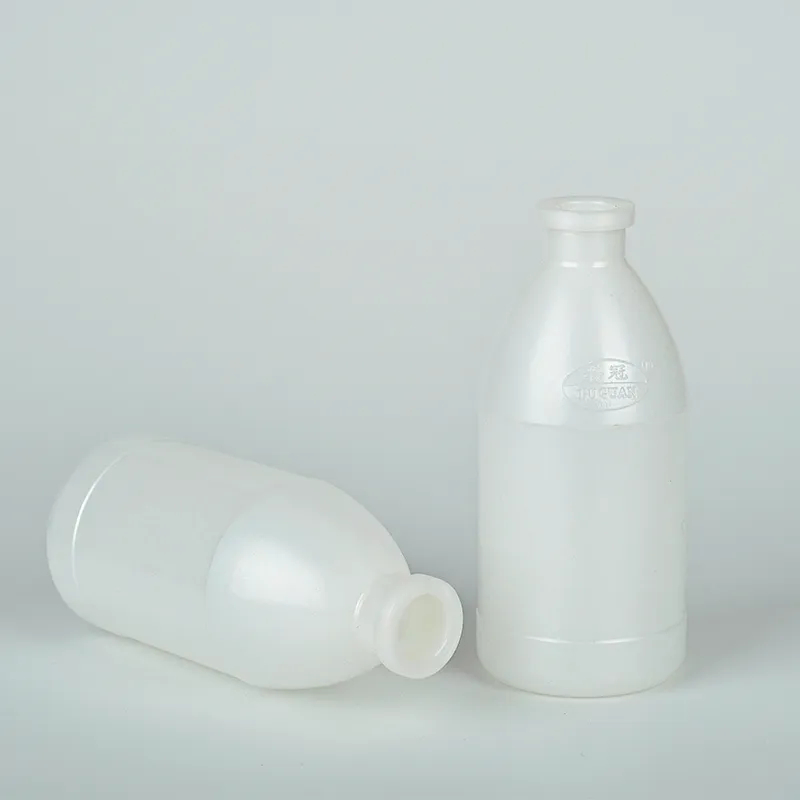Recyclable Plastic Medicine Containers for Sustainable Health Solutions
The Role and Impact of Empty Plastic Medicine Bottles
In our modern healthcare landscape, empty plastic medicine bottles are ubiquitous. They serve as the final resting place for various pharmaceuticals, from everyday pain relievers to critical prescription medications. While these plastic vessels are often overlooked after their contents have been consumed, they play a significant role in both the healthcare system and the environment. Understanding the lifecycle of these bottles, their environmental impact, and the potential for recycling can help us better appreciate their significance.
The Lifecycle of Medicine Bottles
When a patient receives medication, it typically comes in a plastic bottle that is designed for safety, durability, and ease of use. These bottles are crafted from high-density polyethylene (HDPE) or polyethylene terephthalate (PET), materials renowned for their strength and resistance to chemicals. The design of these bottles prioritizes user-friendliness they often feature child-proof caps, labels that display critical information, and are opaque to protect sensitive medications from light.
After the medication is consumed, these bottles often end up in landfills. Unfortunately, many consumers are unaware of the recycling options available for these bottles. This is a concerning issue, given that plastic waste has become a global challenge. While some pharmacies and healthcare facilities have initiated take-back programs, there is still a lack of widespread awareness regarding proper disposal and recycling methods.
Environmental Impact
Statistics reveal a staggering amount of plastic waste produced globally. Millions of tons of plastic, including empty medicine bottles, contribute to landfills and oceans each year. The environmental implications are severe, as plastics take hundreds of years to decompose. They break down into microplastics, which then infiltrate our ecosystems, impacting wildlife and entering the food chain.
empty plastic medicine bottles

The production process itself is energy-intensive, contributing to greenhouse gas emissions and overall environmental degradation. Plastic bottles are largely derived from fossil fuels, making their lifecycle not only a source of waste but also a consideration in climate change efforts. Reducing the use of single-use plastics, including medicine bottles, is essential in mitigating these environmental effects.
The Importance of Recycling
Recycling empty plastic medicine bottles presents a viable solution to mitigate the associated environmental issues. Many communities encourage residents to recycle these containers, which can then be reprocessed into new products, reducing the demand for virgin plastics. It is crucial for individuals to check local recycling guidelines since not all facilities accept these types of plastics. Proper rinsing and removing labels can also enhance the recyclability of these bottles.
Innovative recycling initiatives are emerging in various regions, where collected medicine bottles are transformed into other useful items, such as playground equipment or outdoor furniture. This shift towards a circular economy not only addresses waste management but also promotes sustainability in product manufacturing.
Conclusion
Empty plastic medicine bottles are more than just waste; they embody a significant challenge in our healthcare and environmental systems. As we continue to grapple with the implications of plastic pollution, it is vital to recognize the importance of responsible disposal and recycling. By fostering awareness and encouraging recycling practices, we can contribute to a more sustainable future. Understanding the lifecycle of these bottles allows us to advocate for better practices, ensuring that they are effectively repurposed rather than abandoned in landfills. Collectively, we can shift towards a more environmentally friendly approach in managing plastic waste, starting with something as small as an empty medicine bottle.
-
Aesthetic Makeup Spray Bottles | Fine Mist Empty RefillableNewsAug.19,2025
-
White Plastic Veterinary Vaccine Vials | Lab Liquid BottlesNewsAug.18,2025
-
Plastic Medicine Liquid Bottle: Secure Flip Top Drug VialsNewsAug.17,2025
-
Durable 250ml Blue Plastic Vaccine Vial for Lab & Vet UseNewsAug.16,2025
-
Sterile Virus Sample Tubes: Secure & Reliable Specimen CollectionNewsAug.15,2025
-
White 250ml Plastic Vaccine Vial for Lab & Vet MedicineNewsAug.14,2025
























